Five thousand years ago, the soul directed divine or royal will – feeling and thinking were determined from the periphery. With the birth of personality, the soul became a condensed point, lost the relationship and gained itself – and today?
«It is not what we experience, but how we feel, it is that which we experience that determines our fate.»1 This is what author Marie von Ebner-Eschenbach wrote, giving us a hint, especially for the beginning of the year. Without a doubt, the new year will hold no fewer surprises, no fewer changes, and ruptures than the past. With each such jolt, the soul may see in it a death struggle or a birth pang. What often happens is that no actual feeling arises at all and instead a prevailing mood takes possession of the soul. «It’s all going to get worse anyway.» A reflex where the soul does not feel, but fits into a mood pattern. To become free, it is worthwhile understanding a three-step process of soul development. Here is an observation from the other end of the world: I was standing with a group of travellers at the foot of the Andes in the Atacama Desert. With the morning sun behind us, we were looking at the natural spectacle: The majestic 5,000 meter peaks were glowing red, while the foot of the mountains shimmered in the haze in an unreal blue – as if fire were swimming on water, that’s how this mighty natural spectacle looked. There, in the face of the color show, someone murmured, «Well done!» expressing today’s alienation and indifference. Nature had presented its greatest spectacle and our soul had appreciated it with «Well done». Rarely has the alienation with which we humans today look at the world rather than ‘in’ it been clearer to me. Not unlike looking at the screen of a PC, the world in general is alienated and hardly capable of arousing feelings in the soul. How different it was in earlier times, in the childhood of mankind. As an example of this, here are the words of admonition of Ipuwer, an ancient Egyptian sage,2 who poured his heart out, probably around 2000 BC, when everything was going haywire in Egypt. Excerpts from the long lament:
Indeed, the face is pale.
Indeed, hearts are violent, pestilence has spread throughout the land.
Indeed, men are like ibises.
Indeed, the land turns around as does a potter’s wheel.
Indeed, crocodiles are full of their catch, for men go to them of their own free will!
Indeed, the desert is spread throughout Egypt.
Indeed, laughter has ceased, it is no longer done.
Indeed, you become deaf from noise
Indeed, great and small say: «Oh, if only I were dead!»
Oh, if only there were an end to people, no more conception and no more birth
Then the world would be free from noise and there’d be no strife.
Proof of feeling 4000 years ago! What one experiences around oneself, the soul mirrors 1:1. We live ‹in› feelings. It is the ‹feeling soul› described in anthroposophy, in which the soul becomes the mirror of the outside. How differently then the emotional life in ancient Greece and Rome showed itself.
Cultivating Feelings
Be it the inscription in the Delphic temple of Apollo, «Meden agan» (English: everything with measure), be it in the Aristotelian ethics of the ‹middle,› in Greece, it is always about cultivating feelings. What counts here is not to live in feelings that nature gives away, but to shape feelings. This is staged in ancient Rome: Caesar returns from his campaign in Gaul and millions are lining the streets – jubilation after jubilation. The commander greets the Gods, and it seems as if they return his greeting. There, standing directly behind Caesar on the richly decorated chariot, is a simple soldier whispering in his ear: «Memento Mori – Remember, you too are mortal.» This is the mastery of feelings! If Egypt reminds us of childhood, the childhood of feelings, here is youth, in which one arranges and seizes feelings. In Egypt, the environment, the periphery, determines what we feel. In Greece, it is – driven by the invention of theatre – the personality that is able to grasp the highs and lows of the soul. The feeling concentrates itself into a condensed point and becomes the instrument of the personality. Every war increases the disciplining of feeling. The soul calls you with every fibre to flee, but the drilling and fear of one’s own rank forces one to stay. And today? Years ago, when I witnessed a serious accident on the highway, I understood: in the lane next to me, a driver had fallen asleep, rammed a small truck, which then skidded and overturned. In the rearview mirror, I saw the driver’s fear-distorted face without emotion – enraptured, as if I were a spectator of a movie and not of a real tragedy.
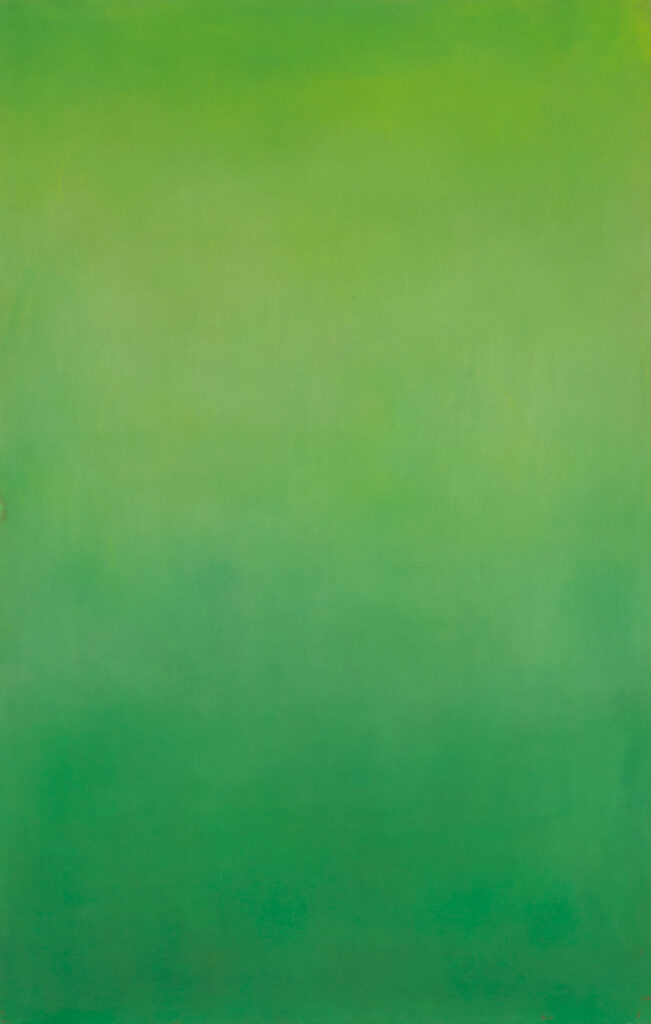
What Grows in the Desert
Modern art teaches us this in its paintings, compositions, and sculptures. One looks at the colors yellow and orange of Mark Rothko and feels nothing, there is also no title given, which could say, what one should feel here. If one doesn’t give up here but looks and asks and offers feelings to the picture, then a secret conversation with the picture begins. And from the conversation, perceptions grow – quietly and deeply. Rudolf Steiner describes this moment in his saying ‹Stars once spoke to men.›3 First, he outlines our current alienation from the world: «Their silencing is the fate of the world.» This is followed with the phrase: «In the mute silence, however, ripens / What men speak to stars.» If feeling became a point in ancient Greece with the birth of the free personality, today it unfolds from conversation, conversation with the world and with oneself. Whether in Islam or in Buddhism and Christianity: the saint finds a way in the desert, finds a way in this emptiness of feeling to address the word to God. The dialogue with oneself and the world has this barrenness as its source, and from this silent speech new feelings sprout. From speaking and listening, hearing and stammering, feeling awakens, and the heart begins to understand anew. How easily it happens that I overlook or disregard these feelings, because they do not burn like their emotional precursors’ ‹indignation› and ‹enthusiasm,› but signify the future in silent glow. If the Greek mind-soul sought distance from the world to get a grip on feelings, today’s consciousness-soul seeks resonance in order to bring forth new feelings. Certainly, quite a few people faced this dilemma during the Christmas season: everything is composed for inwardness, the burning tree, the songs in thirds, the devotion of children, and one feels guilty that the spirit of Christmas doesn’t want to set in.
How would it be to feel no guilt here, but to enter quietly and energetically into conversation and to individually animate the lost present, to generate a new ‹now›? There are a hundred opportunities every day: the more boring a conference, the more trivial a human encounter, the more external a reading, the more attractive the moment is to now give it its interior. It is not about charging the moment emotionally – that would be to (Luciferian) sentimentality, (Ahrimanic) callousness. It is about forming in oneself resonant spaces so that something of the hidden and concealed can reveal itself. «Human beings are the soul of nature,» says Friedrich Hegel. To create feelings anew means therefore to understand this Hegelian sentence as a mission. While in today’s prosperity we consume the earth’s resources, consume its life, we thus give it new spiritual life. This is perhaps already a first splendor of the Aquarian Age. We humans give new life, and it comes, as in the image of Aquarius from the soul center, the feeling of the soul.
The Will Arrives
«But Christ commands it!» These are the closing words of Pope Urban II’s speech at the Council of Clermont in November 1095. Thousands, hundreds of thousands are driven, by this statement, from family and home to Palestine. Just as the word of the Pharaoh called for the building of pyramids, it is once again the power of a higher authority of some kind that determines the will of human beings. To follow a higher will, that was the basic trait in the childhood of mankind, in ancient Egypt, Babylon and Assyria. «I actually always make solo trips, but for once I didn’t want to have to decide anything,» is how a participant in a study trip explained his decision to me. To this day, this soul attitude of taking the will from the periphery persists. Particularly when a lot of people are together, it can drive groups and lead to terrible things. As in the development of feeling, the will of the Greek-Roman culture from the periphery also becomes a condensed point. Two and a half thousand years ago, Athens provoked the Persian Empire and the Great King Darius sent a force. The Athenians consulted the oracle of Delphi, which soon determined the destiny for the next 1,000 years: «Unfortunate ones, what are you still doing sitting? Flee from here.»4 But against the commands of the gods, Miltiades faced the Persian superiority and against the 150 year tradition of warfare, he opened the phalanx and undercut the rain of Persian spears to win the battle. The will – and there are a hundred stories and incidents of this – drives the personality. The idea, the personally set goal, gives direction and strength to the will. Not unlike ‹feeling, › ‹will› also becomes a condensed point, an instrument of the free personality. No wonder that the ancient myths and sagas, from Oedipus to Tantalus to Antigone, have guilt as their theme. Whoever detaches himself and his will from divine reason and from tradition takes guilt upon himself.
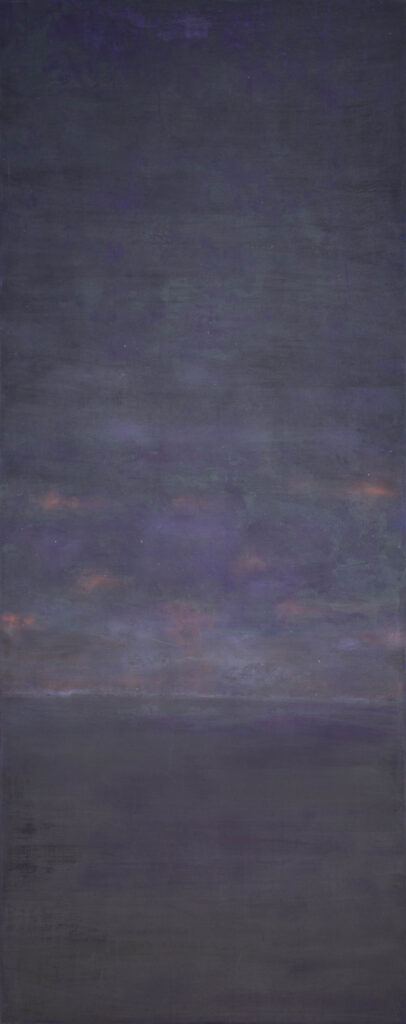
He Who Knows Nothing of the Path
«I want so much. I just don’t know what!» sang actress Marika Rökk in 1942. This is how the will often seems to be today. It doesn’t know where to go. The Greek ideal, where a thought leads the will, in its consequence, opens the door to fundamentalism and leads to the abysmal sentence: «The end justifies the means.» Everything is subordinated to the goal that the thought sets itself. Where ‹will› becomes a condensed point, it becomes destructive. We lose the periphery. In his book ‹Klimapsychologie› [Climate Psychology], Stefan Ruf has found the psychological causes of the climate crisis in this loss of the periphery.5 How does the will develop and how should it develop today? This is shown by the new way in which we tell stories cinematically worldwide. From James Bond to Schindler’s List, all feature films follow the Greek ideal of will: there is a villain to defeat, people to save, and achieving this goal determines the plot. The more obstacles there are on the way, the greater the tension. For about ten years now, the series format of streaming services has dominated. Here, the story doesn’t follow a line, as Aristotle already gave in his Poetics, but the narrative opens a field, a field of fate. There is no longer a beginning and an end, but a network of relationships and life. What becomes of the goal? As in life, it can hardly be fixed in thought, but the path is formed in the dialogue between the inner compass and the present. The beginning of Christian Morgenstern’s poem: «He who does not know of the goal cannot have the way,» is therefore much more apt the other way round: «He who does not know of the way will not have the goal»: The question to young people: ‹What do you want to become?› – is therefore, a Greek question and not a contemporary one. It overlooks the fact that the path of life results from the dialogue between internal orientation and external observation. «Navigating according to moving goals» is what this is called in economic language. As in feeling, today, the will unfolds in theconversation of the internal driving force and what is happening at the moment. Biologist and educator Wolfgang Schad has expressed this change in the formula that Goethe’s «Faust» represents the 19th century and ‹Wilhelm Meister,› where it is no longer the will of an individual but rather the constellation of a group that drives the action forward, corresponding to today.
From the Part to the Whole
In the novel «Fräulein Smillas Gespür für Schnee» (Miss Smilla’s Feeling for Snow), the Inuit talk about snow. There are 60 different names for it – what a variety! The terms aspic and crusted, powder and cardboard snow might be known, but no one these days will be able to make 60 distinctions. Ancient Egypt is a cosmos of such details. For example, a surgical papyrus describes in 40 steps what to do in the event of a head injury. How different it is when the philosopher Thales stands at the pyramid of Cheops and asks a hierophant about its height. «This is mystery knowledge,» according to legend, the temple servant replied. Thales measures the shadow length of his stick and that of the pyramid and thus finds the building height: 150 meters. Today, students in 6th grade learn it as the theorem of intersecting lines. It is the one idea, the mathematical law, which summarizes all phenomena and condenses them into one point. «Everything comes from water!» «Everything comes from fire!» – these are the Greek cosmologies that trace all creation back to one idea. From the part, the mind progresses to the whole and begins to grasp the how and why and loses the who in the process. With Greek thinking it succeeds to dominate the world, to make nature subject to itself. But the laws, with which one grasps the world in the spirit, have no life, and so thinking in ideas and laws pushes back life, bringing death.
Becoming a Master of Thinking
A hundred years ago, physicists discovered that either-or does not always apply in nature, but contradictions are part of creation. What was shown by the light (it cannot be more contradictory) as particles and as radiation, shows itself – depending on how one asks – in all fields today. Objectivity and subjectivity blur into each other, the part and the whole come into conversation, and this is how thinking should be today, so that it enters into a conversation between the particular and the general. The teacher, who knows about temperament and the seven-year cycle, takes a particular student as an individual, unique student. Author Joseph Weizenbaum6 thus distinguishes between human and technical thinking. He takes the three training levels – apprentice, journeyman, and master – as an image. The apprentice, the trainee, learns the rules of his trade. As a journeyman, he masters the rules. As a master, he knows when the rules do not apply. According to Weizenbaum, mastery in thinking means being able to play in the game of the one and the all, of rules and individual cases. It means accepting contradiction. As in feeling and in the will, the soul awakens in thinking, where it conquers the dialogue, the conversation of condensed point and circumference.

If in classical Greek times the soul became a point in the will, in thinking and feeling from a unity with the circumference and was thus able to seize itself and to push open the door to freedom, today it awakens to the conversation of circumference and point, of I and world. In Egypt the soul was carried by the environment. If it lost this circumference, it was itself lost. In Greece and Rome it became a personality, and where it did not succeed in this, it was lost, threatened with death. Transferred to contemporary times, this means that we exist today, that we actually exist where we find ourselves in this conversation. How do I become capable of this conversation? By seeking conversation in my soul where it is most lacking, where it is silent, where shadows of the soul are repressed and unseen. Where it is possible to say yes to one’s own shadow, to learn to ride the dragon, as author Veit Lindau7 describes, the soul gains the key to learning how to celebrate the conversation of point and periphery, of I and world, and thus to rise in the will, feeling and thinking.
Translation Monika Werner
Footnotes
- Marie von Ebner-Eschenbach, Ein Spätgeborener [A Late-Born], 1875. Preceded Motto.
- Admonitions of Ipuwer from Erich Hornung, Gesänge vom Nil [Songs of the Nile]. Zurich 1990.
- I have dealt with this saying in detail in ‹Das Gespräch mit dem Kosmos› [Conversation with the Cosmos], in: Jean Claude Lin (Hg.), Was ist Anthroposophie [What Is Anthroposophy]. Stuttgart 2017.
- Das Orakel von Delphi, Geschichte und Texte [The Oracle of Delphi, History and Texts]. Stuttgart 2001.
- Stefan Ruf, Klimapsychologie – Atmosphärisches Bewusstsein als Weg aus der Klimakrise [Climate Psychology – Atmospheric Awareness as a Way Out of the Climate Crisis]. Frankfurt a. M. 2019.
- Joseph Weizenbaum, Die Macht der Computer und die Ohnmacht der Vernunft [The Power of Computers and the Powerlessness of Reason]. Berlin 1978.
- Veit Lindau, Schattenwerk [Shadow Work]. Munich 2021.




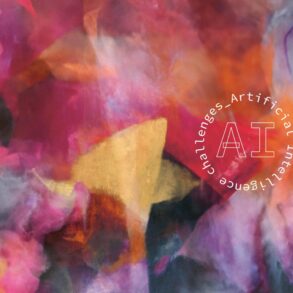
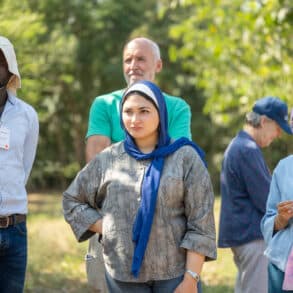
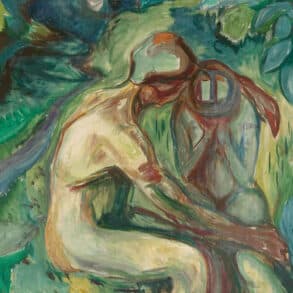
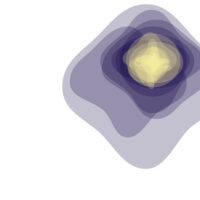


Beautiful and illuminating, thank you!